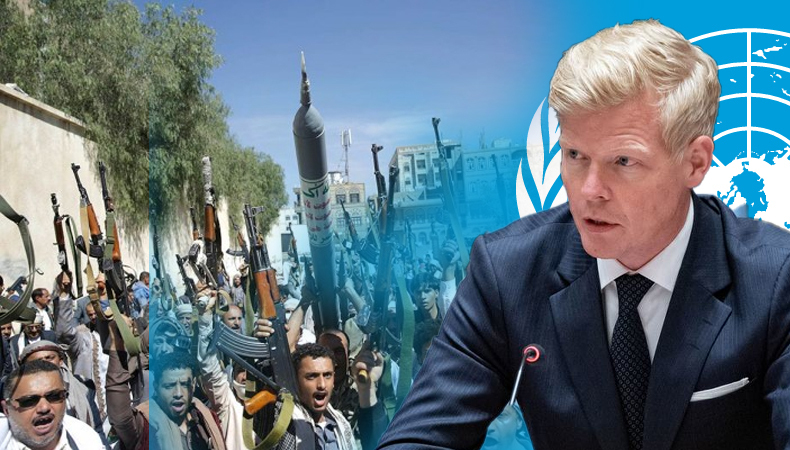Houthi militants commit 230 UN truce violations in 48 hours


According to Yemen’s state news agency Saba, the Iran-backed militia hit with mortar fire Yemen’s army positions and sniped at military personnel deployed in Hodeida, Taiz, Dhale’, Hajjah, Sa’adah, Jawf and Marib. Houthi militants broke the UN-sponsored truce by killing a soldier and injuring 11 others.
General Lieutenant Amin Al-Uqaili, director of the Anti-Landmines National Program, said landmines planted by the Houthis had become more dangerous for civilians due to the rain and floods. Despite the newly renewed UN truce, the Houthi militia tried to plant landmines. It is one of the breaches of the UN-brokered truce. According to Arab News, floods have swept landmines into new areas, making it difficult for anti-mining personnel to detect them. Civilians also reported suspicious-looking objects that could be explosive ordnances.
Last month, at least 12 army personnel were killed and 19 others were injured as a result of the violations of the UN-brokered truce. Reportedly, 109 breaches were committed in the southern Hodeida, 51 in Hajjah, 42 in Barh Military Pivot in western Taiz, 37 in Taiz Pivot, and 24 in the southern, western and north-eastern parts of Marib.
Related Posts
The Houthi militia has been battling a Saudi-led coalition in the war. Yemen has been mired in a civil war since 2014 when the Iran-backed Houthi militants seized control of several parts of northern provinces and forced the Saudi-backed Yemeni government out of Sanaa, the capital of Yemen.
Around seven years of conflict divided Yemen between an internationally-recognised government led by former President Abdrabbuh Mansur Hadi and the Houthis in Sanaa.
The war has also caused a terrible humanitarian crisis in the country. Recently, the World Food Programme in Aden held discussions with local officials on ways to improve the distribution of aid to Yemenis.














